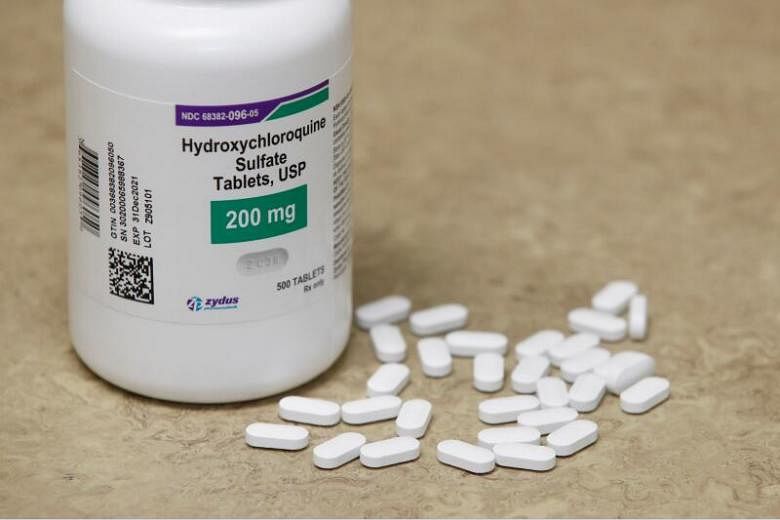BANGKOK - Recruitment of subjects for a major global trial to determine whether an anti-malarial drug can ward off the coronavirus has stalled, after the World Health Organisation (WHO) suspended its own clinical trials on treating Covid-19 patients.
Yet hydroxychloroquine - which United States President Donald Trump says he has taken for two weeks - remains the subject of intense debate in Asia as Indian and Indonesian authorities have stood by the drug. Singapore has stopped using it on Covid-19 patients.
On May 21, the University of Oxford, supported by the Mahidol Oxford Tropical Medicine Research Unit (Moru) in Bangkok, launched a global study to test the efficacy of chloroquine or its derivative, hydroxychloroquine, in preventing Covid-19 infections in healthcare workers. The trial aimed to involve over 40,000 front-line healthcare workers and staff in Europe, Africa, Asia and South America with close contact with patients with Covid-19.
By the next day, the researchers were asked by Britain's Medicines and Healthcare Products Regulatory Agency to pause recruitment for the trial. The British regulator based its decision on an article in the medical journal The Lancet, which found that Covid-19 patients who received hydroxychloroquine were, among other things, dying at higher rates than other patients. This was the same article which led the WHO to suspend giving Covid-19 patients hydroxychloroquine in its own 3,500-patient trial of new treatments for the pandemic.
Recruitment for the Oxford study in Britain and Thailand has paused. Moru, in reply to queries from The Straits Times, said its study is different from the one highlighted in The Lancet, using much smaller doses of hydroxychloroquine and testing it on healthy front-line medical workers rather than patients already stricken with Covid-19.
"We responded promptly to the MHRA, addressing their concerns in detail and await their decision," a Moru spokesman said.
Hydroxychloroquine is also used by patients afflicted with lupus or rheumatoid arthritis to control inflammation. While the world races to find a vaccine for Covid-19, hydroxychloroquine has been kept in the headlines partly by Mr Trump, who first tweeted about its potential in March and then announced this month that he was taking it himself to guard against the disease.
Notwithstanding the misgivings, India, a leading producer of hydroxychloroquine, insisted the drug had no major side effects and continued to recommend it for preventive treatment for Covid-19.
"We found there were no major side effects except for nausea, vomiting, palpitation occasionally," Indian Council of Medical Research Director General Balram Bhargava was quoted by India media as saying on Tuesday.
Malaysia's health ministry also said on Tuesday that it is using hydroxychloroquine in trials to treat Covid-19 patients, but is monitoring them closely for side effects.
Indonesia, which had told doctors to use the drug to treat all Covid-19 patients, had not come to a conclusion as of Tuesday despite being advised by the WHO to suspend the use of hydroxychloroquine, Reuters reported.
Singapore's National Centre for Infectious Diseases says it has long stopped the use of the drug.
"There is increasing evidence that anti-malarial drugs do not work. We have stopped using it at NCID for quite a while now," said Associate Professor David Lye, director of the centre's Infectious Disease Research and Training Office.












